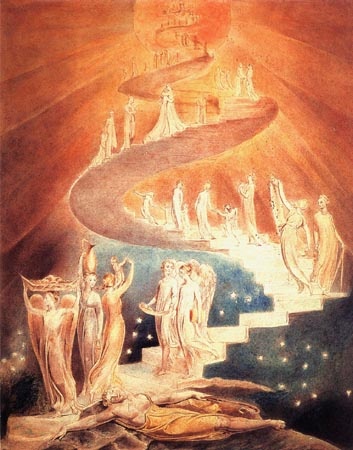In last week’s Torah portion, Vayeshev, dreams got Joseph into deep trouble, as his eagerness to
share his visions of lordship over his brothers provokes their wrath. Fed up with Joseph’s pampered and arrogant
dream-talk, the brothers sell him into Egyptian slavery. It only gets worse from there: Joseph ends up
in prison, languishing for years in the bowels of Pharaoh’s dungeon. The youth with visions of glory now seems
hopelessly sunk in the obscure darkness of the pit.
So what prompts Joseph’s ensuing rise to redemption in this
week’s portion, Miketz? Dreams!
The source of his almost-demise now proves to be his salvation. Joseph correctly interprets the dreams of two
of his cellmates and, eventually, those of Pharaoh himself. Pharaoh rewards Joseph abundantly for his
astute interpretation and advice, elevating him to second-in-command of all
Egypt, where he is in charge of all food storage and distribution. This extraordinary promotion sets the stage
for Joseph’s eventual reunion with his brothers, in which his youthful dreams
are, in fact, realized.
Looking at these events, one wonders: How can dreams be both
the source of Joseph’s travails and the answer to them? Rabbi Isaac Bernstein offers an important
insight here. He notes that as a brash
youth, all that Joseph could here—and tell—were his own dreams. This
inevitably invites trouble. But as he
matures, Joseph learns to listen to, and respect, other people’s dreams. When he gains that hard-won wisdom, he
triumphs.
We are all dreamers.
And surely there is no shame in dreaming large, in big youthful
aspirations. As Hillel teaches, if we
are not for ourselves, who will be for us?
But when our dreams—and egos—leave no space for the dreams of our
brothers and sisters, they can only pull us down. Maturity comes with the recognition that our
dreams are bound with—and tempered by—those of our family, our friends, and
even our adversaries. As the poet W.B.
Yeats wrote: “In dreams begin responsibilities.” If we are only for ourselves, what are we?
May we learn to listen to, and learn from,
one another’s dreams.
Happy Thanksgiving, all.
And here's a great video on the promise of hope and dreams from The Boss:




